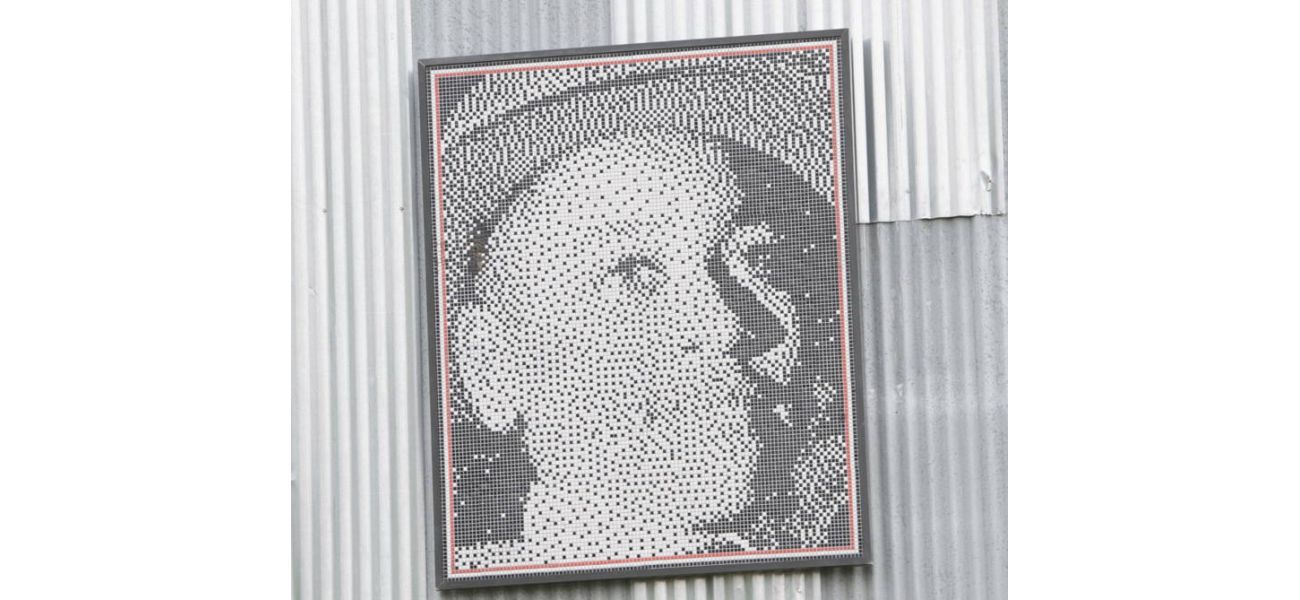11 examples of racism in black history that should never be forgotten.
For centuries, Black people have faced racism in America due to their skin color, since the beginning of slavery.
February 28th 2025.

African Americans have endured centuries of oppression solely due to the color of their skin. America’s foundation is deeply rooted in racism, with a long history of Black people experiencing firsthand the brunt of a racist society at the start of our enslaved arrival to this country. As we reflect on these last few days of Black History Month, BLACK ENTERPRISE is highlighting 10 really racist moments in Black history. These are just a few. While there are plenty more documented racially motivated injustices, let us remember we can never forget these heinous acts against our humanity.
RELATED CONTENT: 8 Of The Blackest Songs That Champion Black Pride
Source: Emmett Till Murder
Emmett Till, a 14-year-old from Chicago, was kidnapped and murdered in Money, Mississippi on August 28, 1955, after Carol Bryant Donham accused the child of flirting with her. Till’s murderers, J.W. Milam and Roy Bryant, Carol’s brother-in-law and husband, bragged about brutalizing and killing Till in Look Magazine after being acquitted by an all-white jury.
Till’s brutally beaten body was published in Jet Magazine, bringing national attention to the cruel treatment of Black people and helping to ignite the civil rights movement. Donham admitted she lied in her court testimony before her death in 2023
Source: Rodney King Beating
In 1993, Rodney King was brutally beaten by four Los Angeles police officers after a traffic violation. He was struck over 50 times, suffering severe injuries, including broken bones and permanent neurological damage. The incident was captured on film, and the officers’ acquittal sparked massive riots in Los Angeles.
King later received $3.8 million in damages and famously pleaded for peace, asking, “Can’t we all just get along?”
Source: 16th Street Baptist Church Bombing
Sept. 15, 1963, the 16th Street Baptist Church in Birmingham, Alabama was bombed, killing four African American girls and injuring over 20 people. The church served as a key meeting place for civil rights discussions, making it a target for racial violence. Three of the four suspected Ku Klux Klan members were later convicted and sentenced to life in prison. Today, the church stands as both a historic civil rights site and an active place of worship.
Source: Charleston 9 Church Massacre
June 17, 2015, Dylann Roof entered Emanuel African Methodist Episcopal Church in Charleston, South Carolina, during a Bible study and opened fire, killing nine Black parishioners. This horrific act of racial violence targeted one of the oldest Black churches in the U.S., a historic symbol of resilience and faith. The shooter was motivated by white supremacist ideology and later convicted of federal hate crimes and sentenced to death. The tragedy sparked national outrage and conversations about gun violence and the legacy of racial terrorism in America.
Source: Exonerated 5
April 19, 1989, five teenage boys—Antron McCray, Korey Wise, Raymond Santana, Kevin Richardson, and Yusef Salaam—were wrongfully accused and convicted of sexually assaulting a white woman in Central Park in New York City. Under police pressure, the young men falsely confessed to the crime and were wrongly convicted. In 2002, a serial rapist admitted to the attack, leading to the group’s overturned convictions and subsequently, their release. In 2014, they settled a civil case for $41 million, highlighting the injustices of racial profiling and coerced confessions. Filmmaker Ava Duvernay released When They See Us, a film that depicted the circumstances and family dynamics around the case, in 2018
Photo credit: Johnny NunezThroughout history, African Americans have faced unimaginable levels of discrimination and mistreatment simply because of the color of their skin. The very foundation of America is rooted in racism, with a long and painful history of Black people being subjected to the harsh realities of a society built on white supremacy. As Black History Month comes to a close, it is important to acknowledge and remember the countless racist moments that have shaped our past and continue to impact our present.
One of these moments was the brutal murder of 14-year-old Emmett Till in 1955. Till, a young boy from Chicago, was kidnapped and killed in Mississippi after being falsely accused of flirting with a white woman. Despite overwhelming evidence, his murderers were acquitted by an all-white jury and even boasted about their heinous acts in a magazine. This tragedy brought national attention to the mistreatment of Black people and played a significant role in the civil rights movement.
Another moment in history that cannot be ignored is the beating of Rodney King in 1993. King, a Black man, was brutally attacked by four Los Angeles police officers after a traffic violation. The incident, caught on film, sparked outrage and led to massive riots in the city after the officers were acquitted. Despite receiving a settlement of $3.8 million, King will forever be remembered as a victim of police brutality and a symbol of the ongoing fight against racial injustice.
In addition to these events, there have been numerous acts of violence and hatred committed against Black communities, including the bombing of the 16th Street Baptist Church in Birmingham, Alabama in 1963. This attack, carried out by the Ku Klux Klan, resulted in the deaths of four young girls and left over 20 people injured. The church, a hub for civil rights discussions, was targeted because of its significance in the fight for equality. Today, it stands as a powerful reminder of the sacrifices made by Black people in the struggle for justice.
More recently, in 2015, the Charleston 9 Church Massacre shocked the nation as a white supremacist entered a historic Black church in South Carolina and killed nine parishioners during a Bible study. This horrific act of violence not only took innocent lives, but it also targeted a symbol of resilience and faith in the Black community. The tragedy sparked important conversations about the deep-rooted legacy of racial terrorism in America.
The injustices faced by African Americans are not limited to physical violence, as seen in the case of the Exonerated 5 in 1989. Five teenage boys were falsely accused and convicted of a crime they did not commit, solely based on the color of their skin. After years of wrongful imprisonment, the group was exonerated when a serial rapist confessed to the crime. Their story shed light on the dangers of racial profiling and coerced confessions, and they received a settlement of $41 million for their unjust treatment.
As we continue to reflect on Black History Month and the struggles of the Black community, it is crucial to acknowledge and remember these racist moments in history. They serve as a reminder of the ongoing fight for equality and justice, and the need for all of us to actively work towards a more inclusive and equitable society. Let us never forget the atrocities committed against our humanity and use them to fuel our determination for a better future.
RELATED CONTENT: 8 Of The Blackest Songs That Champion Black Pride
Source: Emmett Till Murder
Emmett Till, a 14-year-old from Chicago, was kidnapped and murdered in Money, Mississippi on August 28, 1955, after Carol Bryant Donham accused the child of flirting with her. Till’s murderers, J.W. Milam and Roy Bryant, Carol’s brother-in-law and husband, bragged about brutalizing and killing Till in Look Magazine after being acquitted by an all-white jury.
Till’s brutally beaten body was published in Jet Magazine, bringing national attention to the cruel treatment of Black people and helping to ignite the civil rights movement. Donham admitted she lied in her court testimony before her death in 2023
Source: Rodney King Beating
In 1993, Rodney King was brutally beaten by four Los Angeles police officers after a traffic violation. He was struck over 50 times, suffering severe injuries, including broken bones and permanent neurological damage. The incident was captured on film, and the officers’ acquittal sparked massive riots in Los Angeles.
King later received $3.8 million in damages and famously pleaded for peace, asking, “Can’t we all just get along?”
Source: 16th Street Baptist Church Bombing
Sept. 15, 1963, the 16th Street Baptist Church in Birmingham, Alabama was bombed, killing four African American girls and injuring over 20 people. The church served as a key meeting place for civil rights discussions, making it a target for racial violence. Three of the four suspected Ku Klux Klan members were later convicted and sentenced to life in prison. Today, the church stands as both a historic civil rights site and an active place of worship.
Source: Charleston 9 Church Massacre
June 17, 2015, Dylann Roof entered Emanuel African Methodist Episcopal Church in Charleston, South Carolina, during a Bible study and opened fire, killing nine Black parishioners. This horrific act of racial violence targeted one of the oldest Black churches in the U.S., a historic symbol of resilience and faith. The shooter was motivated by white supremacist ideology and later convicted of federal hate crimes and sentenced to death. The tragedy sparked national outrage and conversations about gun violence and the legacy of racial terrorism in America.
Source: Exonerated 5
April 19, 1989, five teenage boys—Antron McCray, Korey Wise, Raymond Santana, Kevin Richardson, and Yusef Salaam—were wrongfully accused and convicted of sexually assaulting a white woman in Central Park in New York City. Under police pressure, the young men falsely confessed to the crime and were wrongly convicted. In 2002, a serial rapist admitted to the attack, leading to the group’s overturned convictions and subsequently, their release. In 2014, they settled a civil case for $41 million, highlighting the injustices of racial profiling and coerced confessions. Filmmaker Ava Duvernay released When They See Us, a film that depicted the circumstances and family dynamics around the case, in 2018
Photo credit: Johnny NunezThroughout history, African Americans have faced unimaginable levels of discrimination and mistreatment simply because of the color of their skin. The very foundation of America is rooted in racism, with a long and painful history of Black people being subjected to the harsh realities of a society built on white supremacy. As Black History Month comes to a close, it is important to acknowledge and remember the countless racist moments that have shaped our past and continue to impact our present.
One of these moments was the brutal murder of 14-year-old Emmett Till in 1955. Till, a young boy from Chicago, was kidnapped and killed in Mississippi after being falsely accused of flirting with a white woman. Despite overwhelming evidence, his murderers were acquitted by an all-white jury and even boasted about their heinous acts in a magazine. This tragedy brought national attention to the mistreatment of Black people and played a significant role in the civil rights movement.
Another moment in history that cannot be ignored is the beating of Rodney King in 1993. King, a Black man, was brutally attacked by four Los Angeles police officers after a traffic violation. The incident, caught on film, sparked outrage and led to massive riots in the city after the officers were acquitted. Despite receiving a settlement of $3.8 million, King will forever be remembered as a victim of police brutality and a symbol of the ongoing fight against racial injustice.
In addition to these events, there have been numerous acts of violence and hatred committed against Black communities, including the bombing of the 16th Street Baptist Church in Birmingham, Alabama in 1963. This attack, carried out by the Ku Klux Klan, resulted in the deaths of four young girls and left over 20 people injured. The church, a hub for civil rights discussions, was targeted because of its significance in the fight for equality. Today, it stands as a powerful reminder of the sacrifices made by Black people in the struggle for justice.
More recently, in 2015, the Charleston 9 Church Massacre shocked the nation as a white supremacist entered a historic Black church in South Carolina and killed nine parishioners during a Bible study. This horrific act of violence not only took innocent lives, but it also targeted a symbol of resilience and faith in the Black community. The tragedy sparked important conversations about the deep-rooted legacy of racial terrorism in America.
The injustices faced by African Americans are not limited to physical violence, as seen in the case of the Exonerated 5 in 1989. Five teenage boys were falsely accused and convicted of a crime they did not commit, solely based on the color of their skin. After years of wrongful imprisonment, the group was exonerated when a serial rapist confessed to the crime. Their story shed light on the dangers of racial profiling and coerced confessions, and they received a settlement of $41 million for their unjust treatment.
As we continue to reflect on Black History Month and the struggles of the Black community, it is crucial to acknowledge and remember these racist moments in history. They serve as a reminder of the ongoing fight for equality and justice, and the need for all of us to actively work towards a more inclusive and equitable society. Let us never forget the atrocities committed against our humanity and use them to fuel our determination for a better future.
[This article has been trending online recently and has been generated with AI. Your feed is customized.]
[Generative AI is experimental.]
0
0
Submit Comment





